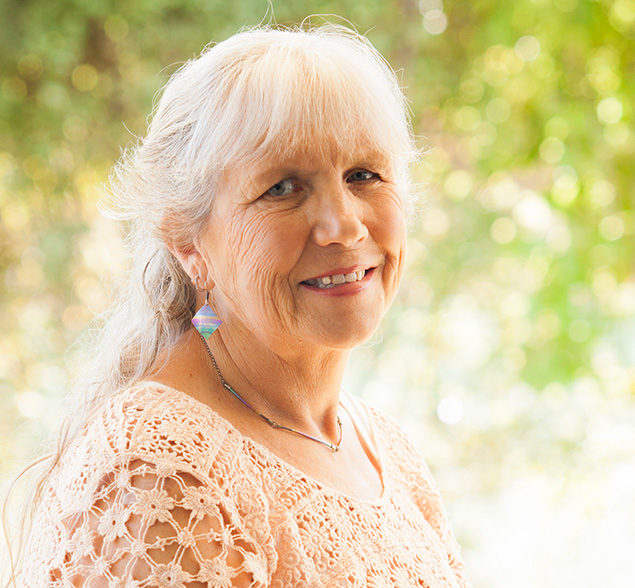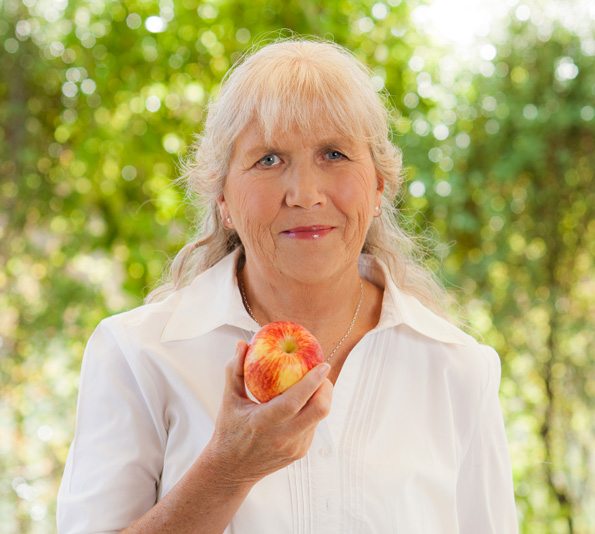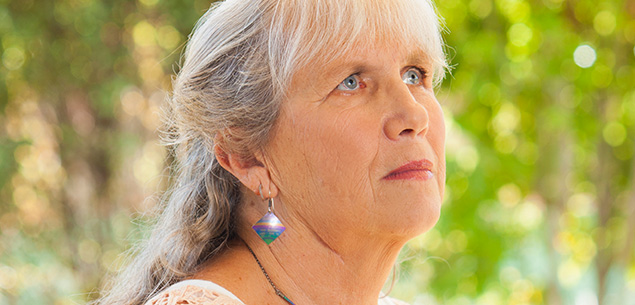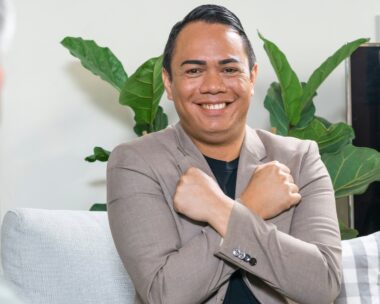When Linda Cole underwent six hours of facial surgery last year, her simple wish was that she might once again be able to bite into an apple. But the operation that was supposed to improve the quality of her life has merely replaced one form of torture with another.
“I seem to be in the one percent of people who get all the weird things,” says the stoic mum of six, who has had more than her fair share of medical misfortune over the years.
“If medical science says it can’t happen, I can do it.”
For Linda (58), what had started out as nothing more than her jaw making a clicking sound when she ate, became a living nightmare after one side of her jaw seized up altogether, leaving her barely able to open her mouth, unable to chew and in such pain that she was given morphine to manage it.

After years of suffering, living off steamed vegetables and meal replacement shakes, she finally underwent a bilateral jaw replacement in September that required six hours of surgery by two surgeons, using custom-made jaw joints that were brought in from the US.
But instead of getting her life back, Linda has found herself experiencing a new kind of agony: Now she can no longer blink her eyes.
“I haven’t blinked in five months,” says Linda, who was warned that she might have some minor nerve damage but never imagined she’d lose control of her eyelids.
“Now I can’t stand the wind or bright light. I live in Raglan, but I can’t go for a walk on the beach because if sand blows in my eyes, I can’t blink it out. It’s been windy all summer so I can’t go outside – I’ve started to feel like I’m just a prisoner trapped in a giant cell.
“Even little things, like washing my hair in the shower, are awful because if the shampoo gets in my eyes, I can’t get rid of it. I was told I should tape my eyes down when I sleep, but I thought that it would be too scary to wake up that way. I just put cream in them to stop them drying out.”
And this isn’t the first time Linda has struck it unlucky with her health. After years of having life-threatening responses to straightforward procedures – she haemorrhaged after having her tonsils removed, required a blood transfusion after a simple nasal operation, and suffered major blood loss after the birth of each of her six children – she was finally diagnosed with a rare hereditary bleeding disorder, known as von Willebrands Type II, that affects one percent of the population.
And with a 50% chance of passing it on to her children, Linda advised her four sons and two daughters to get tested in case any of them had it too.
“Of course,” says Linda, shaking her head, “it turned out to be six out of six.”

Poor Linda just wanted to be able to eat an apple again, but since undergoing the six-hour operation, her condition is far from improved. “Every day, I think, ‘Why did I have the surgery?’” she laments.
“Some people have it all their life and they never have any issues,” she says. Now she is just hopeful that her children and grandchildren won’t suffer as she has. What terrifies her is that several are already having the same issues with their jaws that she started out with.
Linda doesn’t know if things will ever improve, so for now she is just trying to get on with life and find pleasure in the things she can still do.
“I’ve had to carry on because I haven’t got any choice,” she says. “I do some work for Plunket and I’m on the local community board. I try to keep as busy as I can with my restrictions. Every day, I think, ‘Why did I have the surgery?’
All I wanted was to bite an apple and now my face is numb, I can’t blink or frown and I’m still in pain when I eat.
“Sometimes I forget and spontaneously go to eat something before I’ve cooked it. I guess there’s a bit of daredevil in all of us – for me that means biting a raw carrot.”




